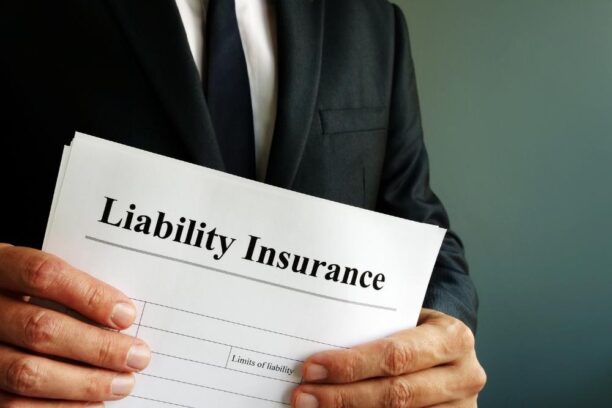Key Facts About Liability Insurance for Propane Businesses

Owning a propane business involves many responsibilities, including protecting your company from risks. Liability insurance is an essential safeguard for any propane business owner. It helps cover potential legal and financial issues arising from accidents, property damage, or injuries related to your operations. Understanding the importance of liability insurance and what it covers is crucial for the long-term success of your business. This guide will explain the key concepts propane business owners should be aware of regarding liability insurance.
Why Liability Insurance is Important
Propane businesses deal with handling and delivering a potentially hazardous substance. Because of this, the risks are higher compared to many other industries. Accidents can happen during delivery, storage, or while the propane is in use. Liability insurance helps protect your business by covering costs associated with accidents or damage.
Without insurance, a single incident could result in expensive lawsuits, medical bills, or property repairs, which can financially harm or even bankrupt a business. Liability insurance provides peace of mind and financial protection so you can focus on running your business without worrying about unexpected negative incidents.
Types of Coverage to Consider
Several types of liability insurance plans are available to propane retailers. Understanding these key options will help you choose the right plan for your needs. The various types of liability coverage includes:
General Liability Insurance: This covers common risks, such as property damage or bodily injuries on your business premises or due to your services. For example, if a customer slips and falls at your office or if a delivery leads to property damage, general liability insurance will help cover the costs.
Product Liability Insurance: This is especially important for propane businesses because it covers claims related to the products you sell. Suppose a propane tank you sold causes an accident or explosion. In that case, this type of insurance will help cover the legal fees and damages.
Commercial Auto Insurance: Since propane businesses use vehicles to transport propane, commercial auto insurance is necessary. This type of coverage protects against accidents while making deliveries. It can include coverage for vehicle damage, medical expenses, and third-party injury claims.
Environmental Liability Insurance: Propane businesses may face risks related to environmental damage, such as fuel leaks or spills. Environmental liability insurance helps cover the costs of cleaning up contamination and legal claims related to environmental harm.
Understanding Policy Limits and Coverage Amounts
Liability insurance policies limit how much they will pay for specific claims. As a propane business owner, knowing these limits and ensuring that your coverage amounts are sufficient to protect your business from large claims is important. If a lawsuit or accident costs more than your policy’s limit, you could be responsible for paying the remaining amount out of pocket.
When choosing coverage amounts, consider the size of your business, the number of vehicles or employees you have, and the overall risks associated with your daily operations. It’s often a good idea to work with an insurance expert who can help you assess your risks and recommend appropriate coverage levels.
Managing Risk and Reducing Liability
While having the right insurance coverage is important, managing risk within your business is equally critical. By implementing safety measures and training your staff on proper procedures, you can reduce the likelihood of accidents or damage occurring in the first place.
Regularly inspect and repair your equipment, such as propane tanks and delivery trucks, to help ensure they function properly and safely. Additionally, providing ongoing safety training for your employees, especially those who handle propane directly, can lower the risk of accidents and liability claims.
Many insurance providers offer discounts to businesses that demonstrate a commitment to safety, so investing in risk management could reduce claims and lower your insurance premiums over time.
Choosing the Right Insurance Provider
Not all insurance providers offer the same level of coverage or customer service. When selecting an insurance company for your propane business, take the time to compare different providers and their policies. Look for a company that specializes in insuring businesses in the propane or energy industry, as they will better understand the specific risks involved.
In addition, check the company’s reputation for handling claims. You want to choose a provider with a track record of fast, fair, and reliable claims processing, as this will be crucial if you ever need to file a claim. A good insurance provider will also work with you to customize a plan that fits your business’s unique needs and budget.
Reviewing and Updating Your Policy
As your propane business grows or changes, reviewing and updating your insurance coverage regularly is important. Adding new vehicles to your fleet, hiring more employees, or expanding your service area can all increase your risk and may require higher coverage limits.
Set a reminder to review your policy at least once a year to make sure it still meets your needs. An annual review allows you to adjust your coverage as your business evolves, ensuring you continue to be protected even as your business expands.
Protecting Your Business
Liability insurance is critical to running a successful propane business. By understanding the different types of coverage, policy limits, and risk management strategies, you can protect your business from unexpected accidents, lawsuits, and financial losses. Choosing the right insurance provider and regularly reviewing your policy will help ensure you have the protection you need to keep your business running smoothly.
















